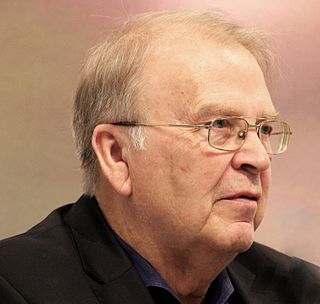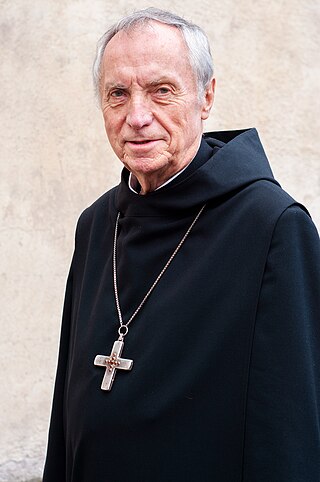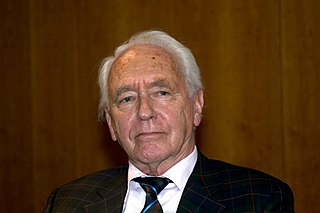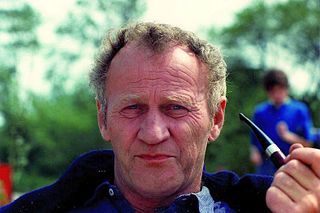
Johannes Mario Simmel, also known as J. M. Simmel, was an Austrian writer.

Christoph Meckel was a German author and graphic artist. He received awards for his works which connect illustrations with the written text, sometimes texts by others.

Wilhelm Genazino was a German journalist and author. He worked first as a journalist for the satirical magazine pardon and for Lesezeichen. From the early 1970s, he was a freelance writer who became known by a trilogy of novels, Abschaffel-Trilogie, completed in 1979. It was followed by more novels and two plays. Among his many awards is the prestigious Georg Büchner Prize.

Notker Wolf is a German Benedictine monk, priest, abbot, musician, and author. He is a member of St. Ottilien Archabbey located in Bavaria, Germany, which is part of the Benedictine Congregation of Saint Ottilien. He previously was elected and served as the ninth Abbot Primate of the Benedictine Confederation of the Order of Saint Benedict. He was elected to his position as Abbot Primate in 2000 and ended his final term in 2016.
Volkmar Sigusch was a German sexologist, physician and sociologist. From 1973 to 2006, he was the director of the Institut für Sexualwissenschaft at the clinic of Goethe University Frankfurt.
Imanuel Geiss was a German historian.

Wolf Dietrich Schneider was a German journalist, author, and language critic. After World War II, he learned journalism on the job with Die Neue Zeitung, a newspaper published by the US military government. He later worked as a correspondent in Washington for the Süddeutsche Zeitung, then as editor-in-chief and from 1969 manager of the publishing house of Stern. He moved to the Springer Press in 1971. From 1979 to 1995, he was the first director of a school for journalists in Hamburg, shaping generations of journalists. He wrote many publications about the German language, becoming an authority. He promoted a concise style, and opposed anglicisms and the German orthography reform.

Max von der Grün was a German novelist.

Luise Rinser was a German writer, best known for her novels and short stories.
Wolfgang Weyrauch was a German writer, journalist, and actor. He wrote under the pseudonym name Joseph Scherer.

Hilde Spiel was an Austrian writer and journalist who received numerous awards and honours.
Verena Reichel is a German literary translator.
Hanns Grössel was a German literary translator and broadcasting journalist.

Gerhard Rühm is an Austrian author, composer and visual artist.

Fritz Joachim Raddatz was a German feuilletonist, essayist, biographer, journalist and romancier.

Gerhard Zwerenz was a German writer and politician. From 1994 until 1998 he was a member of the Bundestag for the Party of Democratic Socialism (PDS).
Iris Radisch is a German literature-journalist. Since 1990 she has written for the mass-circulation weekly newspaper, Die Zeit. More recently she has come to wider prominence through her television work.
Günter Herburger was a German writer. He was initially counted among the "New Realists" funded by Dieter Wellershoff, became the author of socialist, imaginative utopian worlds since the 1970s and took an outsider position in German-language contemporary literature. He was a writer of poems, children's books, radio plays and a member of the PEN Center Germany.

Gerald Hüther is a German neurobiologist and author of popular science books and other writings.
Rudolf Herfurtner is a German writer.












